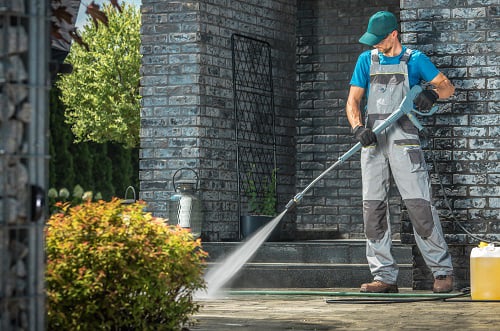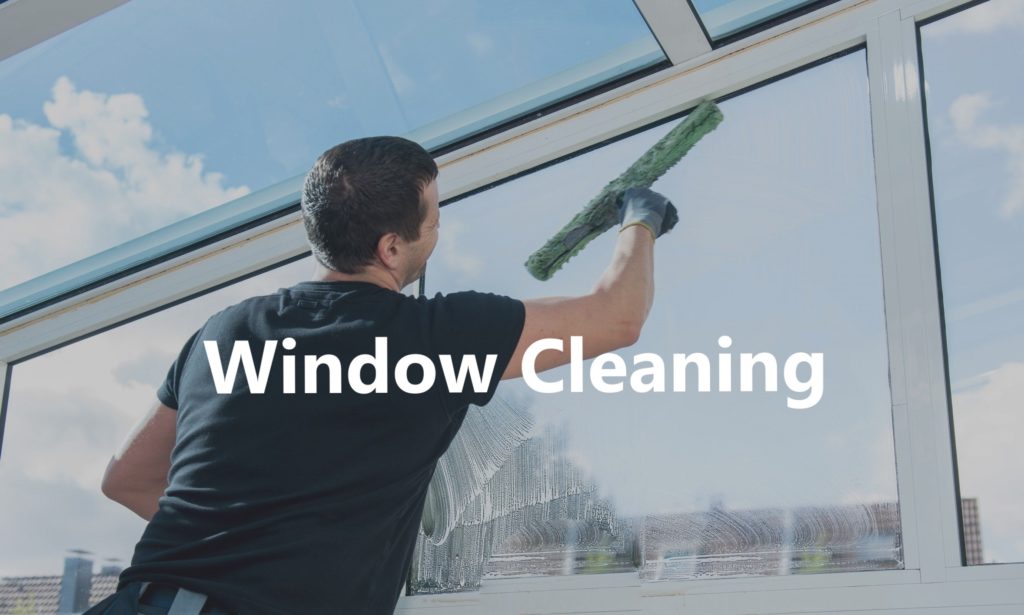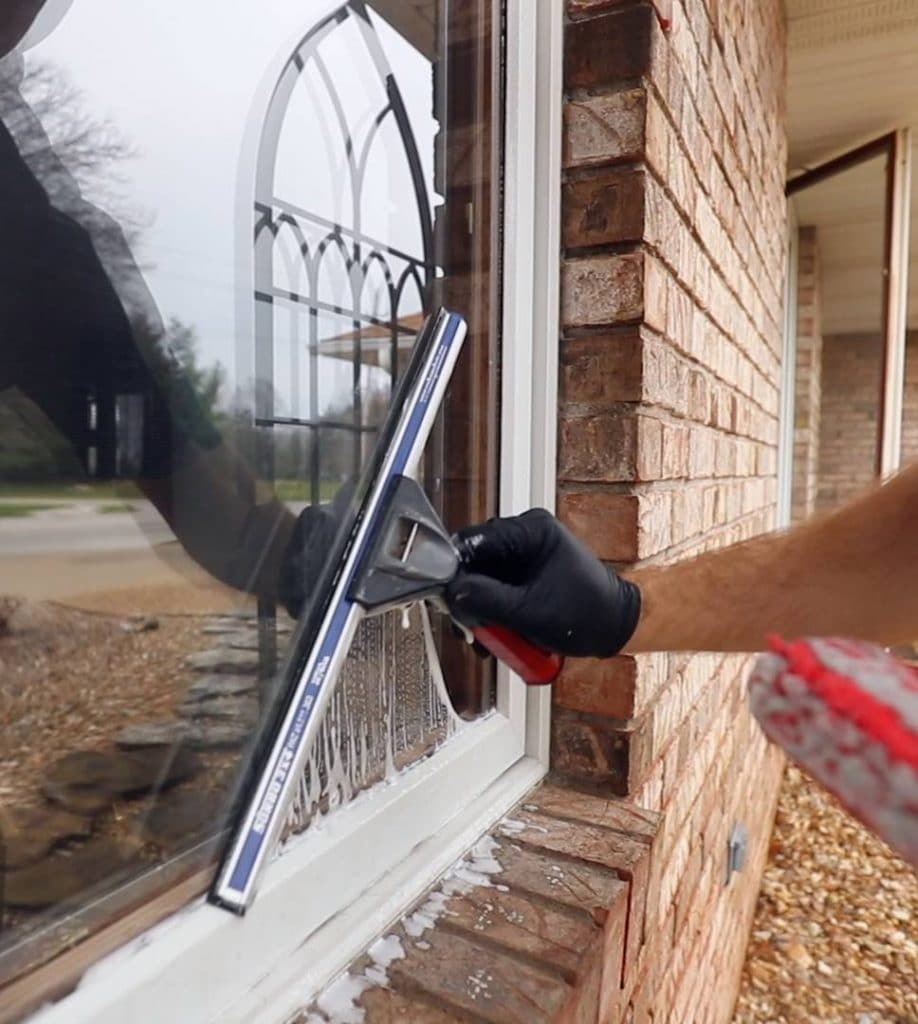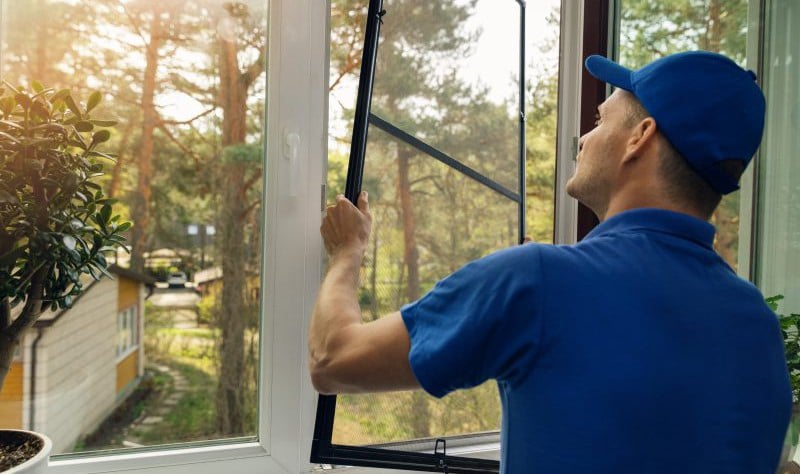


HOW TO CLEAN DIFFERENT TYPES OF DRIVEWAYS



Introduction
Your driveway is more than just a functional part of your home. It’s one of the first things people see when they visit. Over time, driveways gather dirt, oil stains, algae, and other unwanted elements. Cleaning them not only maintains their aesthetics but also ensures longevity. At Advantage Pro Services, with more than 20 years of experience in pressure washing and house cleaning, we understand the intricacies of different driveway materials and how best to clean them.
Understanding Different Types of Driveways
Concrete Driveways
Concrete driveways are one of the most common types seen in modern homes. Made from a mix of cement, water, and aggregates, these driveways are known for their durability. However, they can be porous and, thus, prone to oil stains, mildew, and mold.
Asphalt Driveways
Asphalt driveways are another popular choice, particularly for colder regions, as they can resist the freeze-thaw cycle. Made from stone and bitumen, they’re flexible. Still, they can soften in extreme heat, making them susceptible to oil and gasoline stains.
Gravel Driveways
Gravel driveways give a distinct rustic charm and offer excellent drainage. The spaces between the gravel can, however, allow for weed growth. Over time, the gravel can become uneven and require regular raking.
Brick Driveways
These driveways provide a classic, old-world charm. Made of brick units laid over a sand or mortar base, they can be susceptible to moss growth, especially in shady areas. They might discolor from oil or other spills.
Paver Driveways
Paver driveways are similar to brick but offer a more comprehensive range of design options. They’re made from concrete or stone and can replicate the look of cobblestones, bricks, or other patterns. They can resist heavy loads but are prone to staining and weed growth between the gaps.
Equipment Needed for Driveway Cleaning
Cleaning Solutions
Depending on the type of stain and driveway material, a range of cleaning solutions might be necessary. Selecting the right product is essential, from degreasers for oil stains to solutions specifically designed for mold or algae.
Pressure Washer
A pressure washer is a quintessential tool for cleaning driveways. Its force can dislodge stubborn dirt and stains, giving the driveway a fresh look. Ensure to select the appropriate pressure level to avoid damaging the surface.
Stiff-Bristled Broom
A stiff-bristled broom is essential for drying debris or prepping the driveway before pressure washing. It helps remove loose dirt, leaves, and other materials.
Protective Gear
When using chemicals or pressure washing, protective gear like goggles, gloves, and long-sleeved shirts are crucial to ensure safety.
Cleaning Different Types of Driveways
Method 1: Cleaning Concrete Driveways
Due to their porous nature, concrete driveways are more susceptible to absorbing stains, leading to a myriad of unsightly spots over time. Proper maintenance can help not only in enhancing its appearance but also in prolonging its lifespan. Here’s a detailed method to help you tackle those stubborn stains and give your concrete driveway a fresh, renewed look:
Sweeping Off Loose Debris:
Start by removing dry materials like leaves, twigs, and dirt. A stiff-bristled broom can be effective in dislodging most surface debris. Ensuring a clean surface is critical before moving on to wet cleaning methods.
Pre-Treatment for Stains:
Oil and grease stains are common on driveways. Apply a degreaser or homemade solution like baking soda on the stain. Let it sit for a few hours, allowing it to draw out the oil. Scrub with a brush and rinse.
Using the Right Cleaning Solution:
A mixture of dish soap and warm water can do wonders for general cleaning. If you’re dealing with mold, mildew, or algae, a solution of bleach diluted in water is adequate. Always test any solution on a small, inconspicuous area before applying it to the driveway.
Pressure Washing:
Pressure washing can provide a deep clean, rejuvenating the look of your concrete driveway. Start from one end and work systematically, maintaining a consistent distance to ensure even cleaning. For those without a pressure washer, a garden hose with a high-pressure nozzle can also be effective, although not as thorough.
Rinsing and Drying:
After cleaning, it’s crucial to rinse off any residual cleaning solution. This prevents potential damage or discoloration. Once rinsed, allow the driveway to dry naturally. This will also give you a clear view of areas needing additional attention or spot cleaning.
Sealing the Driveway (Optional but recommended):
Once your driveway is clean and dry, consider applying a concrete sealer. This enhances the appearance, making it look newly laid, and provides a protective layer against future stains and wear.
Regular cleaning and maintenance of your concrete driveway can prevent the buildup of dirt and reduce the appearance of stains, ensuring your driveway remains a visually appealing aspect of your home’s exterior.
Method 2: Cleaning Asphalt Driveways
Asphalt driveways offer a sleek appearance and are particularly prevalent for their durability. However, just like any other material, asphalt can succumb to the elements, stains, and wear over time. Proper maintenance is pivotal not only for aesthetics but also for ensuring the longevity of the driveway. Here’s a comprehensive method to get your asphalt driveway back to its prime:
Sweeping Off Loose Debris:
Initiating the cleaning process requires getting rid of surface materials. Leaves, dirt, and dry debris should be swept away with a stiff broom. This preparatory step ensures that subsequent cleaning efforts are more effective and unobstructed.
Addressing Oil and Grease Stains:
Asphalt is prone to oil stains. To tackle them, sprinkle cat litter or baking soda on the affected area, allowing it to sit and absorb the oil for several hours. Afterward, scrub the area gently and then sweep away the residue.
Selecting the Appropriate Cleaning Solution:
A mild detergent mixed with warm water usually suffices for general cleaning. For stubborn stains or accumulated grime, consider using a driveway cleaner specifically designed for asphalt. Always spot-test any solution on a hidden area first.
Gentle Pressure Washing:
While pressure washing can be beneficial for deep cleaning, using a gentle setting for asphalt driveways is essential to avoid causing damage. Ensure a uniform spray pattern and maintain consistent distance while moving across the surface.
Rinse and Dry:
Thoroughly rinsing off any leftover cleaning agent is imperative to maintain the integrity of the asphalt. Allow the driveway to air dry, revealing areas requiring additional cleaning or spot treatment.
Sealcoating for Protection (Optional but beneficial):
Consider seal coating to restore the rich black appearance of your asphalt driveway and provide added protection. This shields against UV rays, moisture, and chemicals and fills minor cracks, preventing them from expanding.
Staying on top of your asphalt driveway’s maintenance and cleaning schedule ensures it remains an impressive facet of your home’s frontage while maximizing its lifespan.
Method 3: Cleaning Gravel Driveways
Gravel driveways, with their rustic appeal, require a different maintenance approach due to their loose structure:
Regular Raking:
Use a landscape rake to maintain an even surface. This prevents ruts and ensures proper water runoff.
Weed Management:
Weeds can sprout between the gravel. Use a weed killer or manually pull them out to keep the driveway neat.
Refreshing the Gravel:
Over time, gravel can thin out, especially in high-traffic areas. Consider adding a fresh layer when required to maintain a complete look.
Compaction:
Periodically compact the gravel for stability and to deter weed growth.
Method 3: Cleaning Gravel Driveways
Gravel driveways, with their rustic appeal, require a different maintenance approach due to their loose structure.
Method 4: Cleaning Brick Driveways
Brick driveways, with their classic charm, can become marred by moss and mold:
Sweeping:
Regularly sweep off loose debris to maintain the driveway’s appearance.
Moss and Mold Removal:
A diluted bleach solution can help tackle moss or mold. Apply, let it sit, and then scrub gently to avoid damage.
Rinse Thoroughly:
Wash off cleaning solutions to preserve the brick’s color and prevent residue buildup.
Brick Sealer (Recommended):
To enhance longevity and protect against stains, consider applying a brick sealer.
Method 5: Cleaning Paver Driveways
Paver driveways add a modern touch, but the joints between pavers can attract weeds and dirt:
Sweep Regularly:
Start by removing surface debris, ensuring cleaning agents penetrate effectively.
Weed Management:
Address weeds growing between pavers by plucking or using a weed killer.
Gentle Cleaning:
Use a mild detergent solution, scrubbing softly to prevent sand loss from paver joints.
Re-sanding Joints (If needed):
Over time, sand between pavers can erode. Refill and compact the joints to maintain stability.
Importance of Regular Driveway Cleaning
Regular cleaning of your driveway isn’t just about aesthetics. Over time, mold, mildew, and algae can make the surface slippery, posing a hazard. Furthermore, substances like oil can degrade the quality of your driveway, leading to cracks and structural issues. By maintaining cleanliness, you’re improving the appearance and ensuring safety and longevity.
Tips for Maintaining a Clean Driveway
- Address spills immediately to prevent permanent stains.
- Seal your driveway every few years to enhance protection.
- Regularly check for cracks and repair them to avoid more significant structural issues.
- Avoid using harsh chemicals that can damage the driveway’s material.
Hiring Professionals for Driveway Cleaning
Sometimes, the best approach is to trust the experts. With over two decades of experience at Advantage Pro Services, we have honed our techniques to ensure the best results. Our trained professionals are equipped to handle various driveway materials, ensuring you receive a tailored cleaning service that suits your needs.
Conclusion
Driveways, often the unsung heroes of our homes, bear the brunt of daily traffic, harsh weather, and inevitable wear and tear. They silently add character to our properties and play a pivotal role in the overall impression of our homes. This guide aimed to shed light on the diverse types of driveways and the tailored approaches needed for their maintenance.
Regular cleaning and maintenance are not mere tasks; they are investments. They not only elevate the appearance of your space but also significantly prolong the life of your driveway. While DIY methods offer a sense of accomplishment, there’s an unparalleled assurance in trusting seasoned professionals like Advantage Pro Services. Our commitment is underpinned by two decades of industry knowledge, a passion for excellence, and a deep understanding of the unique needs of Houston homes.
In an era where first impressions are often lasting, a clean, well-maintained driveway speaks volumes about the homeowner’s pride and attention to detail. Whether you venture into driveway cleaning as a weekend project or call in the experts, the key lies in consistency. A well-kept driveway doesn’t just enhance curb appeal; it’s a testament to the love and care you invest in your home. And at the end of the day, that pride of ownership, that sense of a house genuinely cherished, is unbeatable.
Frequently Asked Questions (FAQs)
What is the best cleaning solution for concrete driveways?
A mixture of dish soap and water can be effective for general cleaning. However, a specific concrete cleaner or degreaser is recommended for stubborn stains like oil. Always test a small area before applying any solution to the entire driveway.
How often should I clean my driveway?
It’s advisable to clean your driveway at least twice a year. However, suppose your driveway is frequently exposed to heavy traffic, tree sap, and bird droppings or has had significant spills. In that case, more frequent cleaning might be necessary.
Can I use a regular garden hose instead of a pressure washer?
While a garden hose can be used for basic cleaning, a pressure washer provides a more thorough cleaning, especially for stubborn stains and grime. If you’re concerned about damaging your driveway, ensure you use the appropriate pressure settings.
Are there any natural alternatives to chemical cleaning solutions for driveways?
Natural solutions like a mixture of vinegar and water or baking soda can be effective for lighter stains. However, specialized cleaners may be required for more ingrained dirt or stains like oil.
Why should I consider hiring professionals like Excellent Power Wash for driveway cleaning?
Excellent Power Wash professionals have the expertise, equipment, and solutions tailored for different driveway materials. They can efficiently handle stubborn stains and provide a deep clean without risking damage to your driveway. With over 20 years of experience, Advantage Pro Services offers customized cleaning plans based on individual needs, ensuring your driveway is in the best hands.









